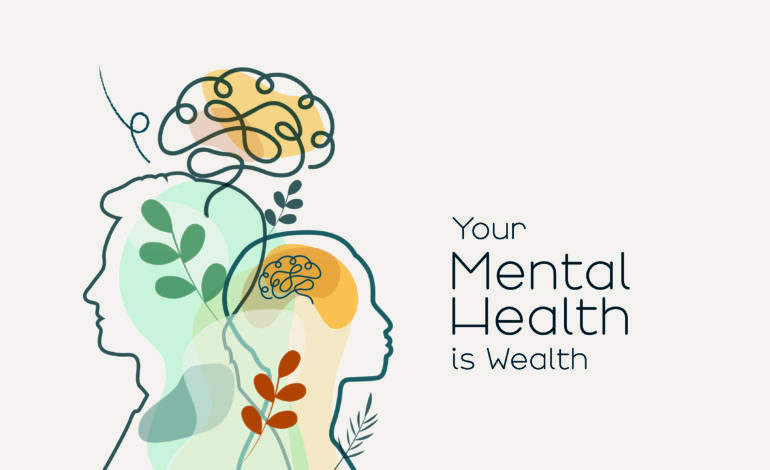Understanding the Signs of Mental Health: How iSupportedHousing Can Help
October is Mental Health Awareness Month, a time to reflect on the importance of mental well-
being and to break the stigma surrounding mental health challenges. Mental health affects all
areas of life, from our relationships and work to our physical health and overall happiness. At
iSupported Housing, we believe in supporting not just the physical needs of our tenants but also
their mental and emotional well-being.
This blog post will help you understand the signs of mental health issues, the various types of
mental health conditions, and how iSupported Housing is here to support anyone in need.
Recognising the Signs of Mental Health Challenges
Mental health issues can manifest in many different ways, depending on the individual and the
type of condition they are experiencing. Some common signs to look out for include:
1. Changes in Mood
- Sudden or extreme mood swings, including irritability, sadness, or heightened anxiety.
- Feelings of hopelessness or worthlessness that last for extended periods.
2. Withdrawal
- Avoiding social situations, friends, and family.
- Isolation or reluctance to engage in activities that were once enjoyable.
3. Changes in Sleep and Appetite
- Insomnia or oversleeping.
- Sudden weight loss or gain due to changes in eating habits.
4. Difficulty Concentrating
- Struggling to focus on tasks or make decisions.
- Forgetfulness or disorganisation in daily activities.
5. Fatigue
- Persistent feelings of tiredness, even after a full night’s rest.
- Lack of energy that makes it difficult to complete everyday tasks.
6. Physical Symptoms
- Headaches, stomach aches, or other unexplained physical pains that don’t seem to have
a medical cause.
7. Risky Behaviors
- Engaging in reckless activities or using substances such as drugs or alcohol to cope with
feelings. - Recognising these signs is crucial in identifying when someone may need support or
professional help.
Different Types of Mental Health Conditions
Mental health is a broad field, with various types of conditions that affect individuals differently.
Some of the most common mental health conditions include:
1. Anxiety Disorders
- Generalised Anxiety Disorder (GAD): Excessive worry about everyday issues.
- Panic Disorder: Sudden attacks of overwhelming fear.
- Social Anxiety Disorder: Intense fear of social situations.
2. Depression
- Characterised by prolonged feelings of sadness, loss of interest in activities, and fatigue.
It affects one’s ability to function in daily life.
3. Bipolar Disorder
- Involves episodes of extreme mood swings, ranging from manic highs to depressive
lows.
4. Post-Traumatic Stress Disorder (PTSD)
- Develops after experiencing or witnessing a traumatic event. Symptoms may include
flashbacks, nightmares, and severe anxiety.
5. Obsessive-Compulsive Disorder (OCD)
- Characterised by uncontrollable, recurring thoughts (obsessions) and behaviors
(compulsions) that the person feels compelled to repeat.
6. Schizophrenia
- A serious condition that affects how a person thinks, feels, and behaves. It can involve
hallucinations, delusions, and impaired thinking.
7. Personality Disorders
- Includes conditions like Borderline Personality Disorder (BPD), which affects how people
perceive themselves and others, leading to unstable relationships and self-image.
8. Eating Disorders
- Such as anorexia, bulimia, and binge-eating disorder, which involve unhealthy
relationships with food and body image.
Each of these conditions affects individuals in unique ways, and understanding them helps
create a supportive environment.
How iSupported Housing can help
We understand that stable housing is a vital part of mental health recovery. At iSupported
Housing, we are committed to providing a safe, supportive, and inclusive environment for all
tenants, including those who may be struggling with their mental health.
Here’s how we can help:
1. Community Support
We foster a sense of community, where residents can connect with others and reduce feelings
of isolation. Social events and community groups can be excellent ways to engage and make
new friends.
2. Referrals to Mental Health Services
We can connect tenants with local mental health professionals and services, such as
counselors, psychologists, and support groups. If you need help finding the right resources, our
team is here to guide you.
3. Confidential Support
If you’re experiencing mental health challenges, you can confidentially reach out to our staff for
assistance. We prioritise privacy and offer a safe space to discuss concerns or find the help you
need.
4. Emergency Assistance
If you or someone you know is experiencing a mental health crisis, we have protocols in place
to ensure you can access urgent care quickly. We work with local authorities and health services
to provide the necessary support in emergency situations.
5. Flexible Housing Arrangements
We understand that mental health challenges can impact a person’s financial and personal
stability. If you’re struggling, reach out to us—we may be able to offer accommodation to suit
your needs.
Conclusion: We’re Here for You
Mental health is just as important as physical health, and at iSupported Housing, we are
committed to supporting the well-being of every tenant. If you’re experiencing any signs of
mental health issues or simply need someone to talk to, don’t hesitate to reach out. We are here
to help, whether through community support, referrals, or just a listening ear.
This Mental Health Awareness Month, let’s work together to break the stigma, support one
another, and prioritise mental wellness. No one has to face their challenges alone— iSupported
Housing is always here for you.
